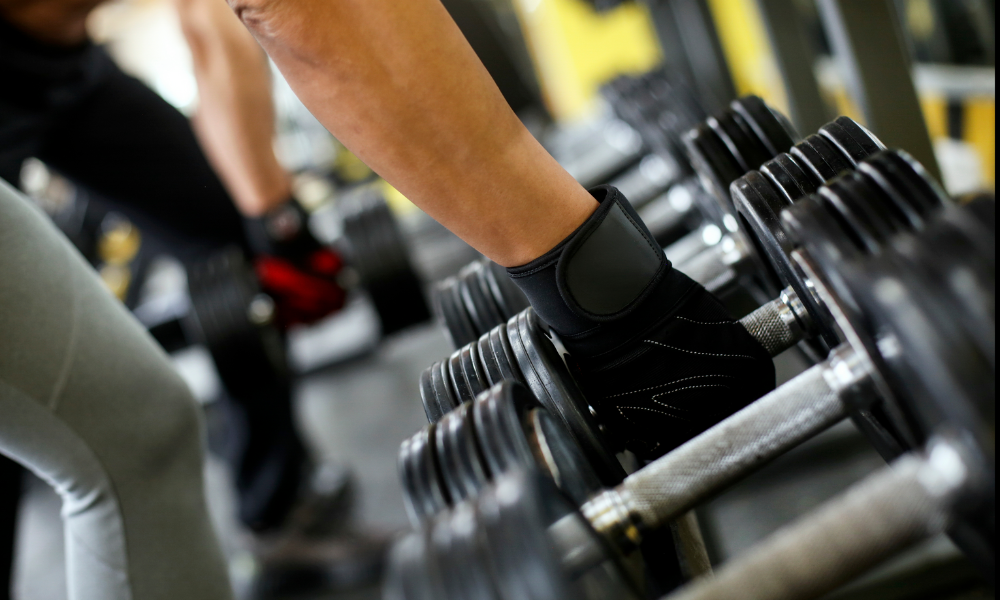
When it comes to physical exercise, we often think about the benefits for our bodies. This includes building muscle, improving cardiovascular health, and promoting weight management. However, research is revealing certain forms of exercise can profoundly affect brain health. One such exercise is weight training (resistance training).
A recent study was published in the prestigious British Journal of Sports Medicine. The study found resistance training strengthens muscles throughout the body. But it also pumps up the brain. Resistance training involves exercises where muscles contract against external resistance.
The Power of Resistance Training for Brain Health
Resistance training has been shown to lower the risk of a wide range of medical disorders, including cardiovascular disease and diabetes. But how does it achieve this? The answer lies in its ability to improve the brain’s capacity to access and process glucose.
- Unstable blood sugar levels over extended periods can lead to inflammation and insulin resistance, hindering brain cells from accessing the energy they need and potentially causing long-term damage.
- However, the study found that a single session of resistance training can decrease blood glucose and insulin levels for up to 24 hours.
This improved glucose regulation not only benefits the body but also has profound implications for brain health. By ensuring a steady supply of energy to the brain cells, resistance training can help maintain optimal cognitive function and potentially reduce the risk of neurodegenerative diseases.
Building Brain Volume with Exercise
The benefits of exercise on brain health don’t stop there. Another study was published in the Journal of Alzheimer’s Disease. It analyzed brain scans of over 10,000 individuals. The study found a remarkable correlation. The correlation was between physical activity and brain volume.
- Brain volume is directly linked to brain health, with smaller volumes indicating cognitive decline and an increased risk of dementia.
- The study revealed that even moderate levels of physical activity, such as taking fewer than 4,000 steps a day, could be associated with larger brain volume.
Participants who engaged in moderate to vigorous physical activity, defined as exercise that increases pulse rate and respiration for at least 10 minutes, showed increased brain mass in multiple regions, including:
- The hippocampus, responsible for memory
- Gray matter, which processes information
- The occipital, frontal, and parietal lobes
These findings suggest regular exercise may have potential neuroprotective effects. It doesn’t matter if it’s walking, running, or playing sports. The exercise may help maintain brain volume. It may also stave off cognitive decline.

Incorporating Weight Training into Your Routine
So, how can you harness the power of resistance training to support your brain health? Here are some tips:
- Start with bodyweight exercises: If you’re new to resistance training, begin by mastering basic movements like squats, lunges, pushes, and pulls using your body weight. This will help you develop proper form and build foundational strength.
- Gradually increase resistance: Once you’ve mastered the basics, gradually add resistance by incorporating free weights, resistance bands, or weight machines into your routine.
- Vary your exercises: To target different muscle groups and keep your workouts challenging, rotate through a variety of resistance exercises, such as deadlifts, bench presses, shoulder presses, and rows.
- Aim for 2-3 resistance training sessions per week: Experts recommend engaging in resistance training at least twice a week, with some suggesting three sessions for optimal results.
- Consider working with a certified personal trainer: If you’re new to resistance training or have specific fitness goals, a personal trainer can provide guidance, ensure proper form, and create a personalized program tailored to your needs.
Embracing a Holistic Approach to Brain Health
While resistance training is a powerful tool for supporting brain health, it’s important to remember that a holistic approach is key. Combine your resistance training routine with other brain-boosting habits, such as:
- Engaging in cardiovascular exercise, like brisk walking, running, or cycling
- Practicing mindfulness and stress management techniques
- Getting adequate sleep
- Maintaining a balanced, nutrient-rich diet
- Staying socially and mentally active
The latest findings on the brain benefits of weight training and physical activity are exciting and empowering. They remind us that taking care of our bodies through exercise is also an investment in our cognitive well-being. So, grab those weights, challenge your muscles, and give your brain the workout it deserves!

[…] More Great Posts: THE UNEXPECTED LINK: WEIGHT TRAINING AND IMPROVED COGNITIVE PERFORMANCE […]